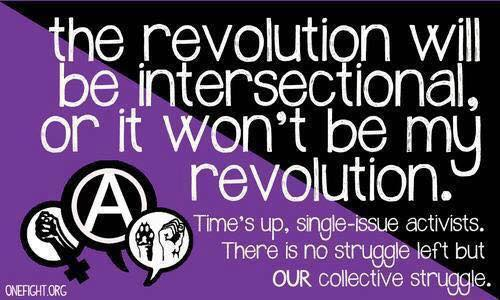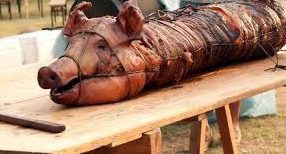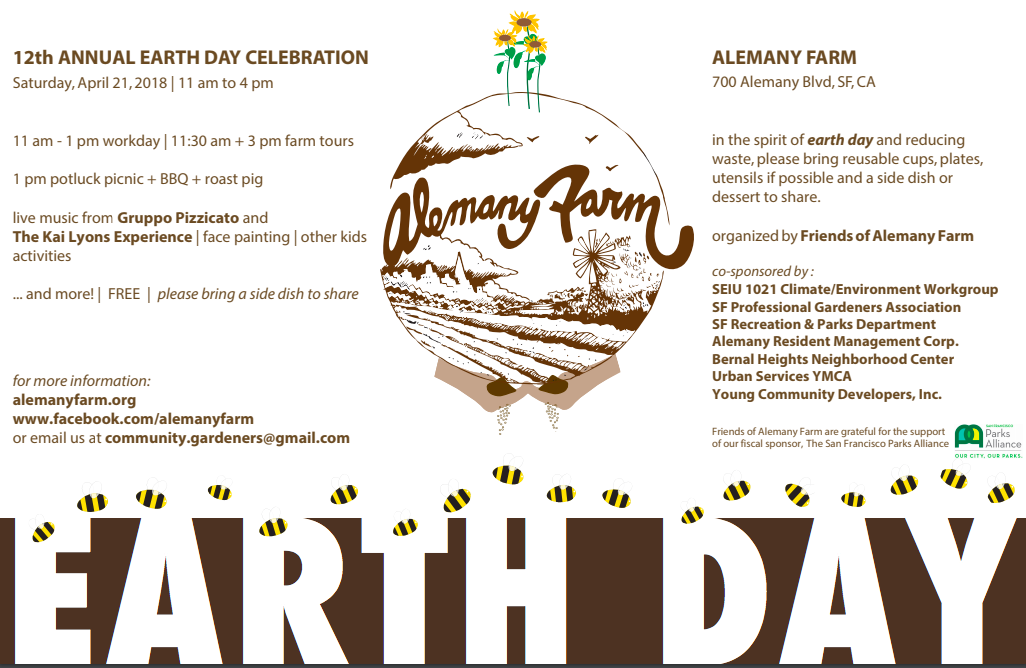When Direct Action Everywhere (DxE) started its activism in the 2010s, it was one of the most inspiring things that I had seen. It still gives me hope, even though I also saw how blocked they got–internally, externally, both through their own fault and the fault of others…
Many vegans reacted negatively to DxE from the get go – before their bigger controversies – because of the discomfort that vegans often have with the strong “speak out” type of behavior that DxE was known for (like marching into a Chipotle to loudly decry the animal cruelty behind the “humane meat” branding). Vegans would often rather be nice and bake cookies. That also has its place, but it’s not enough.
I heard of DxE early on. We hosted one of their first meetings at our anarchist space in the Mission in San Francisco. There were only a handful of people. I don’t know what they discussed, but I was happy to offer some support (as we did for other liberatory organizations; that was one of the goals of that space).
I had been vegan for almost two decades and in that time, I had gone through some changes in my own views and approach. I had come to see animal liberation as something that would need go deep into the “how” of changing social norms. My views had come, in part, from being around ex-vegans and ex-vegetarians (and being an ex-ex-vegan myself), as well some study on the dynamics around minorities and change (and some reflection on my own experiences as various flavors of minority).
So for example, I was no longer interested in making some great case about how veganism would save the world, or to strengthen my case by adding to an ever-growing number of “reasons to go vegan”. The vegan’s usual speech of “animals + health + planet” is deemed more effective the more they tack onto the list: social justice! racial justice! capitalism! the oceans! the obesity crisis! etc. The goal is to build up to a glorious checkmate.
It appeared to me that no matter how convincing a case one made, first of all, many people won’t prioritize it. I know that flying is harmful, yet I fly. Likewise, one can know about the harms of bacon for the climate, and still eat some bacon. Secondly and more importantly, there was always the potential that someone would come up with a counter-case that, rightly or wrongly, would be convincing to many. Immediately after the movie Cowspiracy came out, Kiss the Ground was made as a response. So my question was, how do we get off this treadmill? How do we get people to see eating cows as no different than eating dogs?
If we weren’t truly internalizing that cows aren’t food, there would always be the potential for them to be turned into food in the future. When vegans or vegetarians went back to “eating meat” or “eating animals”, they never started to eat all animals. The norms they grew up with stayed with them; they deemed “meat” only the animals that our culture designated as such. Clearly, even when these people were vegan, they had still categorized the cows, pigs and chickens as separate from the non-food animals.
My work with Seed the Commons (STC), the organization I co-founded, was based on these ideas. Around the time that DxE was gaining steam, STC was starting to build awareness and a social movement around veganic farming. On the surface, the work of the two organizations may have seemed very different, but in my mind we had the same fundamental approach, which could be characterized as, “What would it look like if veganism were normative? If vegans were the majority?”
My primary strategy was not to put forth veganics as a great solution (though in some contexts, such as climate talks, it is appropriate to do this too). Rather, as we worked to wrest food systems from corporate control and to promote alternatives that were sustainable and just, we took our vegan ethic to be normative. At our yearly forum, our speakers covered a wide range of issues, and many of them were not vegan. However, when it came time to speak of the agricultural foundation of a better food system, all the speakers were vegan.
Our first forum featured a panel of veganic growers and was the effective launch of a huge amount of organizing around veganics – but the main point was that this was a panel on agroecology whose speakers happened to be vegan. I had spent a decade regularly traveling as an interpreter for La Via Campesina–I was well aware that agroecology is not usually conceived of as vegan. But how about we decide that in our space, veganism is our ethic, and see if we can find agroecologists who work within that framework? How about we position ourselves not in a vegan silo, preaching to the choir about all the ways that veganism is beneficial, but instead at the helm of a comprehensive movement for food system transformation? Back in 2015 it took some effort, but we did find speakers who practiced agroecology without farmed animals or their inputs, and we put together a panel on agroecology working within the framework of tomorrow’s norms.
This had the benefit of putting forth a vision for what agriculture could look like after animal liberation. The animal rights movement was not doing this at the time (in fact they were quite resistant to it), and the void was being filled by folks whose agricultural models not only included animal exploitation as a default, but who fought against animal liberation by claiming that closed-loop farming could not be done in a vegan way. Not only were we undoing this false narrative, we were putting ourselves and veganic farmers in leadership positions in this movement for food system transformation, flipping the whole thing.
Going back to the Cowspiracy v Kiss the Ground face off–what if we rejected that paradigm? What if we made space for the arguments and vision of regenerative grazing proponents, but with our ethics? Could it be done? It seemed like it could.
If we want to liberate cows, pigs and chickens from the shackles of the “farm animal” construct, it helps to look into how we, as vegans and as activists, still carry the distinctions that set those animals apart. Going vegan is one important step, but even as vegans, as people in a minority position, we often bow to dominant norms in other ways. For example, we might openly condemn cruelty towards dogs or other humans, but as much as we empathize with cows, we might assure our friends that we “respect their choice” to eat hamburgers, lest we be branded as judgmental. Judgment is rarely seen as a bad thing when it aligns with the majority (or a strong-enough minority). Another example is the need to make veganism about something other than what it really is about for most of us: our empathy for animals.
Seed the Commons used to offer veganic gardening workshops that were taught by a young veganic farmer, Matt Loisel. He had become vegan right after completing his training to be an organic farmer. At the time, there was precious little information about veganics online, so he and his wife had to painstakingly figure things out on their own. He initially went vegan because he watched Cowspiracy, i.e. for the climate, but his empathy for animals increased once he eschewed the ways he had been taught to exploit and kill them. He used to say “if I were to find out now that being vegan was bad for the climate, I would still be vegan”.
Likewise, DxE put animals front and center. Their analysis was usually spot-on, their campaigns and actions were incredibly well-crafted. They raised their voice as we do for dogs, as we do for humans, as we do when we have not been taught to censor the movement of our empathy. DxE was forcing the conversation on what is always the crux of the issue, that is: what right do we have to own and abuse these animals? By what criteria is it said that their suffering doesn’t matter? Why these animals in particular? These are the questions that are always avoided through a dizzying array of deflections. Most vegans chase the deflections; they would spend days defending themselves against accusations that vegans are all privileged, white, judgmental or that they don’t care about humans. It’s more rare for vegans to name the deflection (in these examples the ad-hominem) and bring the conversation back to the topic that the carnist is avoiding. DxE did this through their activism and helped activists gain the courage and clarity to do this in their personal conversations.
Some will say things like “nobody was ever convinced by being shouted at” and “you win more people with honey than vinegar”. To that I have to say that these people really don’t know what drives change, including in themselves. We all have stories of the book or the person who changed our mind, and we all have stories of the person who was so off-putting that we immediately rejected what they said. But there is more to changing minds than that. When vegans choose to shout or protest or clearly tell someone that eating animals is wrong, they are not being obtuse. They are taking into consideration other factors that change minds and social norms, with an awareness that this takes time. You might be initially repulsed by a bunch of folks shouting in a Whole Foods, or by that obnoxious co-worker who won’t sit at the table when others are eating meat. But the repulsion itself also happens as part of a given social and cultural context, and that context is slowly transformed by the cumulative effects of actions such as those mentioned above.
I think that DxE has done a lot of good, but the obstacles they faced limited how much of an impact they could have. I never joined them because, as much as I admired their activism, I saw in their internal culture and functioning things that I knew would be a problem for me. Later on, I was also the recipient of some unsavory behavior from them. So I don’t idealize them–far from it. But for the sake of animals, let’s stop letting personal dislikes or conflicts cloud our analysis. It’s important that we be able to discuss the merits of their activism without getting sidetracked by the things they have been accused of. I’m not saying that these accusations should be ignored. I am saying that they should not be used as an excuse to not discuss, in an unbiased manner, DxE’s tactics in their own right. It seems like this should be obvious, but when I was active in the movement, a real frenzy and taboo had been built up around DxE. While I believe that some of the accusations have merit, it was also glaringly obvious that they were victims of a smear campaign (at least one).
One of the weaknesses of the vegan and animal rights movements is that most of its members had no experience in other progressive or leftist movements and, as a result, were unprepared for the challenges that activists commonly face. I believe that this was one of the reasons that some became so easily galvanized in trying to take down DxE.
At Seed the Commons, we avoided getting involved in movement politics. While we never worked with DxE, we also didn’t exclude them or reject their invitations. For this, we received quite a bit of backlash. Wayne Hsiung (one of DxE’s founders), spoke at our 2016 forum, and years later the ED of another organization secretly tried to get Seed the Commons excluded from conferences under the pretext that we had once invited Wayne to speak. This also points to issues that go beyond the animal rights movement, including the territoriality that can emerge when social change becomes an industry and the authoritarianism and cancel culture that came to define “social justice” in the 2010s. When STC invited other organizations to endorse one of our campaigns, one authoritarian made her endorsement contingent on DxE not endorsing the campaign. Imagine if every time you signed a petition you first made sure that none of your enemies had signed it. DxE had not been invited to sign because that campaign was not relevant to them, but looking back I should have been less gracious in my response to such an irrational demand.
One of the interesting dynamics I witnessed was when an organizer told me that she had canceled Wayne’s talk at her conference – against her own judgment and desire – because she had been pressured into doing so. Then, in the most circular manner, the people who pressured her to exclude DxE used the fact that DxE had been excluded from this conference to bolster their case against DxE, as if the organizer had taken this measure of her own volition.
Getting into all of this would take a whole essay, or more likely a book, and I probably don’t know half of it. What I see though is that we can learn from DxE’s strategies. Researching the obstacles DxE faced would also produce an enriching resource for those of us who work towards animal liberation and any other progressive cause in a time of social movements and non-profits. Why were so many vegans averse to DxE’s tactics? Why were some keen to gatekeep? How did DxE’s own dynamics hold them back and hold back others? Who was behind the smear campaigns and why were these so effective? And so on. I hope that someone will take on this project. In the meantime, there are many ways that all of us can start shifting norms from where we are.




